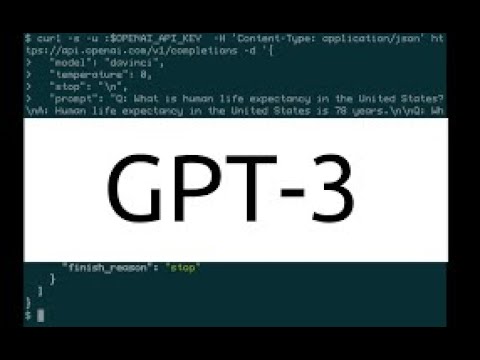NIAN
The program itself is called GPT-3 and it’s the work of San Francisco-based AI lab OpenAI, an outfit that was founded with the ambitious (some say delusional) goal of steering the development of artificial general intelligence or AGI: computer programs that possess all the depth, variety, and flexibility of the human mind. For some observers, GPT-3 — while very definitely not AGI — could well be the first step toward creating this sort of intelligence. After all, they argue, what is human speech if not an incredibly complex autocomplete program running on the black box of our brains?
“Input any text, and GPT-3 completes it for you: simplicity itself”
As the name suggests, GPT-3 is the third in a series of autocomplete tools designed by OpenAI. (GPT stands for “generative pre-trained transformer.”) The program has taken years of development, but it’s also surfing a wave of recent innovation within the field of AI text-generation. In many ways, these advances are similar to the leap forward in AI image processing that took place from 2012 onward. Those advances kickstarted the current AI boom, bringing with it a number of computer-vision enabled technologies, from self-driving cars, to ubiquitous facial recognition, to drones. It’s reasonable, then, to think that the newfound capabilities of GPT-3 and its ilk could have similar far-reaching effects.
Like all deep learning systems, GPT-3 looks for patterns in data. To simplify things, the program has been trained on a huge corpus of text that it’s mined for statistical regularities. These regularities are unknown to humans, but they’re stored as billions of weighted connections between the different nodes in GPT-3’s neural network. Importantly, there’s no human input involved in this process: the program looks and finds patterns without any guidance, which it then uses to complete text prompts. If you input the word “fire” into GPT-3, the program knows, based on the weights in its network, that the words “truck” and “alarm” are much more likely to follow than “lucid” or “elvish.” So far, so simple.
